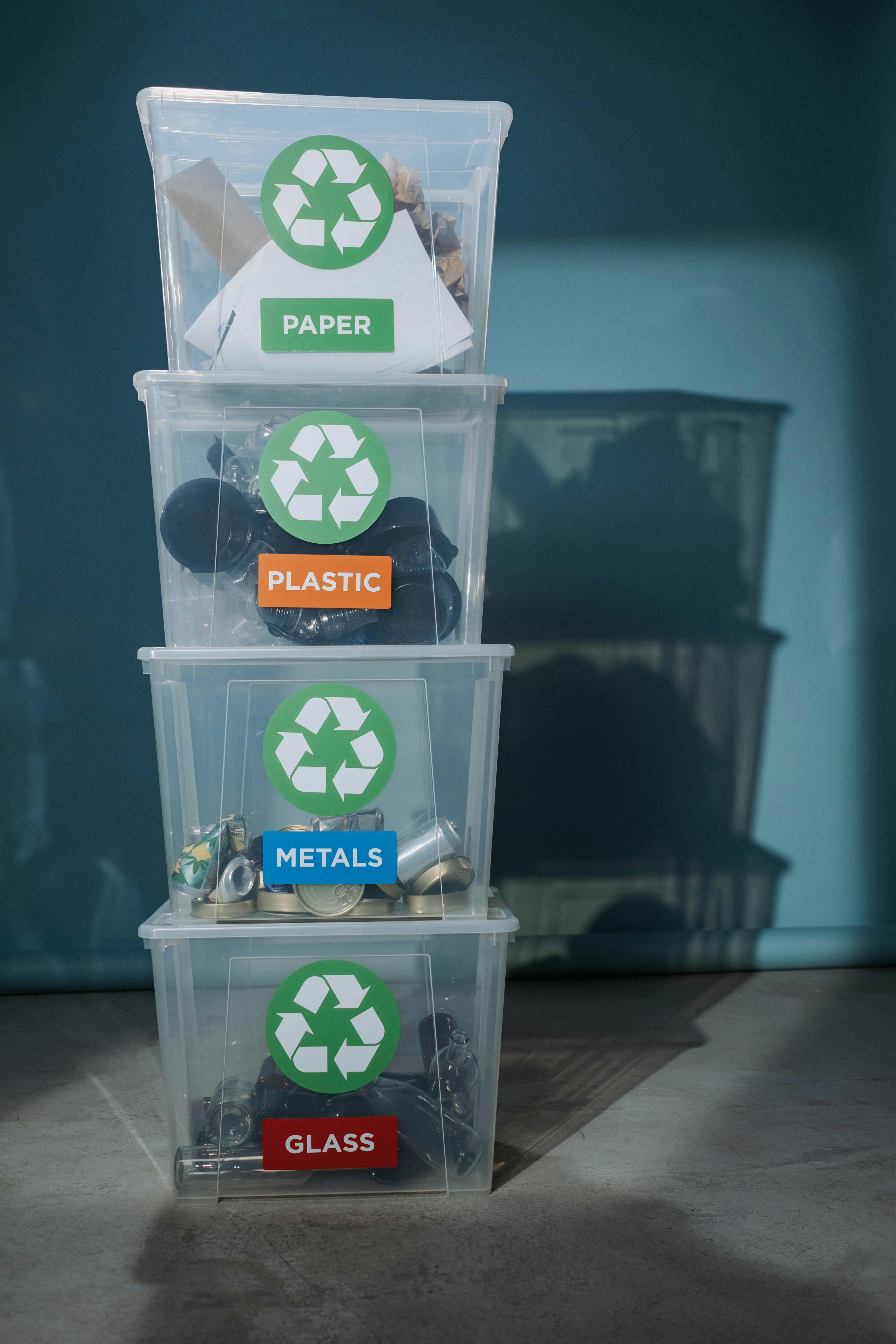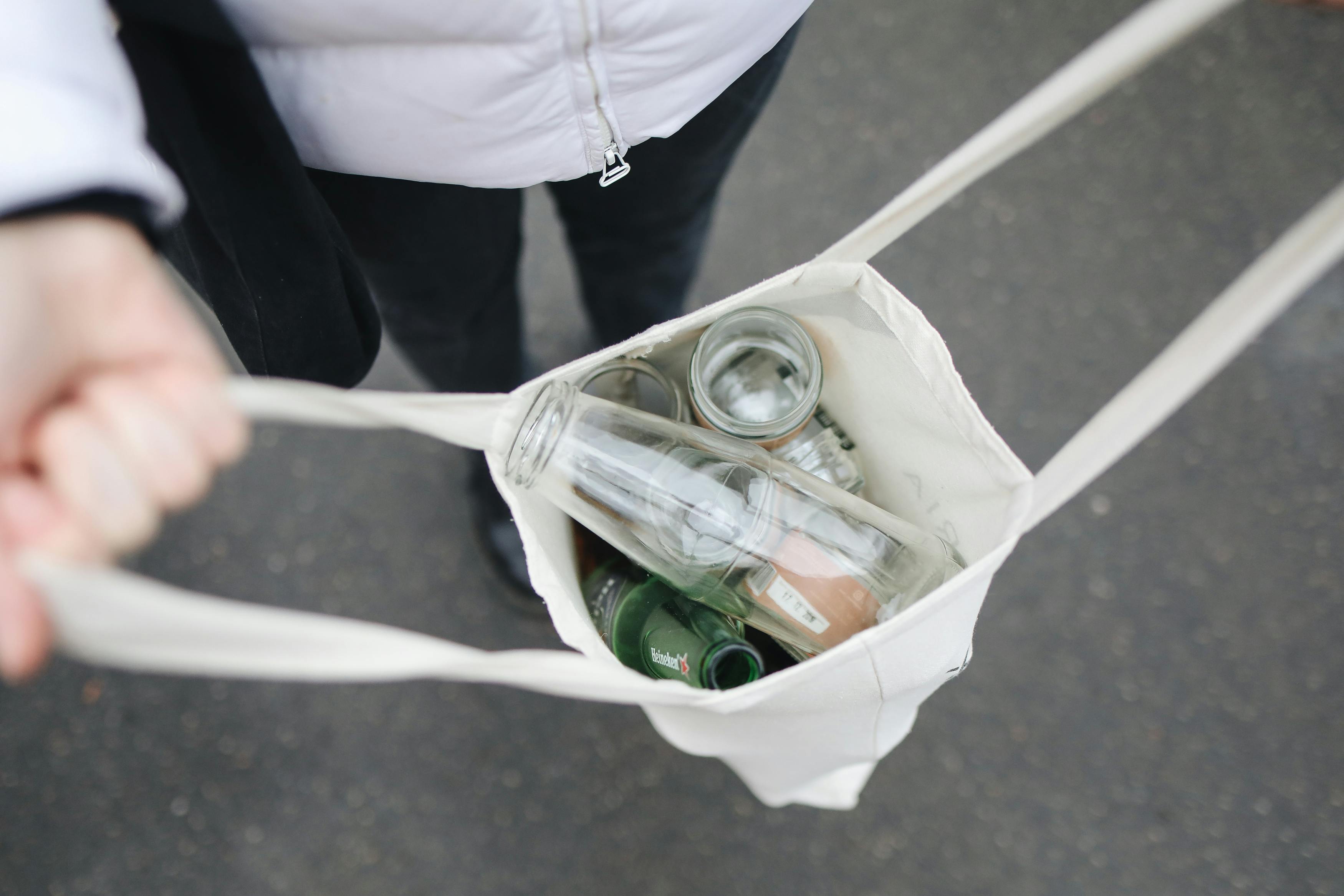How to Live a Zero Waste Van Life: Sustainability on the Road
Have you ever wondered how to combine the freedom of van life with a commitment to sustainability? What if you could explore the open road while minimizing your environmental impact? Living a zero waste van life is not only possible but incredibly rewarding. By making conscious choices and embracing sustainable practices, you can reduce your waste footprint and enjoy the adventure of van life with a clear conscience. In this comprehensive guide, we’ll explore practical tips and strategies to help you live a zero waste van life.
1. Choosing the Right Van
Your journey to a zero waste van life begins with selecting the right vehicle. Consider the following factors to ensure your van is both sustainable and functional:
- Fuel Efficiency: Opt for a van with good fuel efficiency to reduce your carbon footprint. Consider hybrid or electric options if available.
- Second-Hand Purchase: Buying a second-hand van is a great way to reduce waste and give a vehicle a new lease on life. Look for well-maintained used vans that meet your needs.
- Sustainable Materials: If you’re building or renovating your van, use sustainable and recycled materials. Bamboo, reclaimed wood, and recycled metal are excellent choices.

2. Designing a Zero Waste Van Interior
Creating a zero waste van interior involves thoughtful planning and sustainable choices. Here’s how to design an eco-friendly living space:
- Minimalist Approach: Embrace a minimalist design to reduce clutter and waste. Focus on multifunctional furniture and storage solutions that maximize space.
- Eco-Friendly Insulation: Use natural and sustainable insulation materials, such as sheep’s wool or recycled denim, to maintain a comfortable temperature inside the van.
- Natural Lighting: Incorporate large windows and skylights to maximize natural light, reducing the need for artificial lighting during the day.
3. Reducing Plastic Use
One of the key aspects of zero waste living is minimizing plastic use. Here’s how to reduce plastic in your van life:
- Reusable Containers: Invest in reusable containers for food storage, toiletries, and cleaning supplies. Glass, stainless steel, and silicone are durable and eco-friendly options.
- Bulk Shopping: Buy groceries and supplies in bulk to reduce packaging waste. Bring your own bags, jars, and containers to refill at bulk stores.
- Natural Fibers: Choose natural fiber clothing, bedding, and towels to avoid synthetic materials that contribute to microplastic pollution.

4. Managing Waste Efficiently
Efficient waste management is crucial for zero waste van life. Implement these strategies to minimize and manage waste:
- Composting: Set up a small composting system in your van for organic waste. Composting toilets and portable compost bins are great options.
- Recycling: Create designated recycling bins for different materials. Research local recycling facilities along your travel route to ensure proper disposal.
- Reduce and Reuse: Prioritize reducing and reusing items before resorting to recycling. Repair and repurpose items whenever possible.
5. Sustainable Food Practices
Eating sustainably is an important part of zero waste living. Here’s how to make eco-friendly food choices on the road:
- Local and Organic: Support local farmers and markets by purchasing organic produce and products. This reduces food miles and supports sustainable agriculture.
- Plant-Based Diet: Consider adopting a plant-based diet, which has a lower environmental impact compared to animal-based diets. Stock up on fresh fruits, vegetables, grains, and legumes.
- Preservation Techniques: Learn food preservation techniques such as canning, pickling, and dehydrating to extend the shelf life of your groceries and reduce food waste.
6. Eco-Friendly Cleaning
Keeping your van clean doesn’t have to harm the environment. Use these eco-friendly cleaning practices:
- Natural Cleaners: Make your own cleaning solutions using natural ingredients like vinegar, baking soda, and lemon. These are effective and non-toxic alternatives to commercial cleaners.
- Reusable Cloths: Ditch disposable paper towels and use reusable cloths and sponges for cleaning. Wash them regularly to maintain hygiene.
- Biodegradable Soaps: Choose biodegradable soaps and detergents for washing dishes, clothes, and yourself. These break down more easily in the environment.
7. Water Conservation
Water is a precious resource, especially on the road. Conserve water with these tips:
- Low-Flow Fixtures: Install low-flow faucets and showerheads to reduce water usage. These fixtures provide adequate pressure while using less water.
- Water Filtration: Use a water filtration system to purify water from natural sources, reducing the need for bottled water.
- Mindful Usage: Be mindful of water usage by taking shorter showers, turning off the tap while brushing your teeth, and using a basin to wash dishes.
8. Energy Efficiency
Power your van sustainably by focusing on energy efficiency and renewable sources:
- Solar Panels: Install solar panels on your van’s roof to harness renewable energy for powering appliances and devices. Choose high-efficiency panels to maximize energy production.
- LED Lighting: Use LED lights, which are more energy-efficient and have a longer lifespan than traditional bulbs.
- Battery Management: Invest in a high-quality battery management system to store and distribute energy efficiently. This helps you make the most of your renewable energy sources.

9. Sustainable Transportation
Traveling sustainably goes beyond your van’s fuel efficiency. Consider these eco-friendly transportation practices:
- Eco-Driving Techniques: Practice eco-driving techniques such as maintaining a steady speed, avoiding rapid acceleration, and reducing idling to improve fuel efficiency.
- Public Transportation: When parked in cities or towns, use public transportation, bicycles, or walking to explore the area. This reduces your carbon footprint and saves fuel.
- Carpooling: If traveling with friends or fellow van lifers, carpooling can help reduce the number of vehicles on the road and share travel costs.
10. Mindful Consumption
Being mindful of your consumption habits is essential for a zero waste lifestyle. Here’s how to consume consciously:
- Second-Hand Shopping: Purchase second-hand clothing, gear, and supplies to reduce waste and support a circular economy. Thrift stores, online marketplaces, and swap events are great resources.
- Minimalist Wardrobe: Adopt a minimalist wardrobe with versatile, high-quality pieces that can be mixed and matched. This reduces the need for frequent purchases and minimizes waste.
- Digital Books and Media: Opt for digital books, magazines, and media instead of physical copies to reduce paper waste. E-readers and tablets are compact and convenient for van life.
11. Engaging in Sustainable Activities
Living a zero waste van life also involves engaging in sustainable activities and supporting eco-friendly initiatives:
- Volunteer Work: Participate in volunteer opportunities that support environmental conservation, such as beach cleanups, tree planting, and wildlife protection programs.
- Eco-Tourism: Choose eco-tourism activities and accommodations that prioritize sustainability and support local communities. Look for certifications like Green Key or Eco-Cert.
- Education and Advocacy: Educate yourself and others about zero waste living and environmental issues. Share your knowledge and experiences through social media, blogs, or community events.

12. Building a Zero Waste Community
Connecting with like-minded individuals and building a zero waste community can enhance your van life experience:
- Online Communities: Join online forums, social media groups, and zero waste communities to share tips, advice, and support with fellow van lifers.
- Local Networks: Attend local zero waste events, workshops, and meetups to connect with others who share your values and goals.
- Collaboration and Sharing: Collaborate with other van lifers to share resources, tools, and skills. This fosters a sense of community and reduces the need for individual purchases.
13. Navigating Challenges
Living a zero waste van life comes with its own set of challenges. Here’s how to navigate them effectively:
- Limited Space: Make the most of your limited space by prioritizing essential items and using multi-purpose tools and furniture.
- Access to Resources: Plan your routes and stops to ensure access to recycling facilities, bulk stores, and sustainable services.
- Weather Considerations: Adapt to different weather conditions by having appropriate clothing, insulation, and ventilation to maintain comfort and reduce energy usage.
14. Tracking Your Progress
Tracking your progress is important to stay motivated and make continuous improvements. Here’s how to keep track of your zero waste journey:
- Waste Audit: Conduct regular waste audits to identify areas where you can reduce waste further. This involves analyzing your waste output and finding alternatives for non-recyclable items.
- Sustainability Goals: Set clear sustainability goals and track your progress towards achieving them. Celebrate your successes and learn from any setbacks.
- Journaling: Keep a journal to document your experiences, challenges, and solutions. This can provide valuable insights and serve as a resource for others.
15. Inspiring Others
Your zero waste van life journey can inspire others to adopt sustainable practices. Here’s how to share your story and inspire change:
- Social Media: Use social media platforms to share your experiences, tips, and successes. Create engaging content that highlights the benefits and challenges of zero waste living.
- Blogging: Start a blog to provide detailed guides, resources, and personal stories about your zero waste van life journey. Use SEO-rich content to reach a wider audience.
- Workshops and Talks: Host workshops, webinars, or talks to educate and inspire others. Share practical tips and encourage discussions on sustainable living.
16. Sustainable Travel Tips
Traveling sustainably is an integral part of zero waste van life. Here are some tips to ensure your travels are eco-friendly:
- Plan Efficient Routes: Plan your travel routes to minimize fuel consumption and reduce your carbon footprint. Avoid unnecessary detours and plan stops strategically.
- Respect Nature: Follow Leave No Trace principles by respecting natural environments, disposing of waste properly, and avoiding damage to wildlife habitats.
- Support Eco-Friendly Campsites: Choose campsites and RV parks that prioritize sustainability. Look for facilities with recycling programs, solar power, and water conservation measures.
17. Creating a Zero Waste Toolkit
A zero waste toolkit is essential for managing daily tasks and reducing waste. Here’s what to include:
- Reusable Shopping Bags: Carry a variety of reusable bags for groceries, produce, and bulk items.
- Mason Jars and Containers: Use mason jars and stainless steel containers for food storage, shopping, and takeout.
- Travel Cutlery: Keep a set of reusable cutlery, including a fork, knife, spoon, and chopsticks, for meals on the go.
- Cloth Napkins: Replace paper towels with washable cloth napkins for cleaning and dining.

18. Eco-Friendly Personal Care
Adopting eco-friendly personal care routines is crucial for a zero waste lifestyle. Consider these tips:
- Solid Toiletries: Use solid shampoos, conditioners, and soaps to eliminate plastic packaging. These products are compact and last longer than liquid versions.
- DIY Products: Make your own personal care products using natural ingredients. DIY toothpaste, deodorant, and lotion are simple to create and free from harmful chemicals.
- Reusable Razors: Switch to a safety razor with replaceable blades instead of disposable razors. This reduces plastic waste and provides a closer shave.
19. Building Sustainable Habits
Sustainable habits are the foundation of a zero waste lifestyle. Here are some habits to incorporate into your daily routine:
- Mindful Consumption: Be conscious of your consumption habits and make intentional choices. Avoid impulse purchases and opt for quality over quantity.
- Repair and Maintain: Regularly maintain your van and belongings to extend their lifespan. Learn basic repair skills to fix items instead of replacing them.
- Seasonal Eating: Eat seasonal and locally sourced foods to support local agriculture and reduce the environmental impact of food transportation.
20. Embracing the Zero Waste Mindset
Finally, living a zero waste van life requires a shift in mindset. Embrace these principles to fully commit to sustainability:
- Continuous Learning: Stay informed about zero waste practices and sustainability issues. Read books, follow blogs, and engage with the zero waste community.
- Flexibility and Adaptability: Be prepared to adapt your routines and strategies as you encounter new challenges and opportunities. Flexibility is key to maintaining a zero waste lifestyle on the road.
- Celebrate Progress: Acknowledge and celebrate your successes, no matter how small. Living a zero waste lifestyle is a journey, and every step towards sustainability is an achievement.
Frequently Asked Questions about Zero waste Living
How do I start a zero waste lifestyle?
Starting a zero waste lifestyle is an enriching journey that benefits both you and the environment. Begin by conducting a waste audit to understand your current waste habits. Identify areas where you can reduce, reuse, and recycle. Replace single-use items with reusable alternatives like stainless steel water bottles, cloth shopping bags, and glass containers. Opt for bulk shopping to minimize packaging waste and choose eco-friendly products. Compost organic waste to reduce landfill contributions. Educate yourself on zero waste practices by reading blogs, joining online communities, and following zero waste influencers. Embrace the “refuse, reduce, reuse, recycle, rot” mantra in your daily life. Remember, progress over perfection—small, consistent changes lead to significant impact. Starting a zero waste lifestyle is a commitment to sustainability and a healthier planet. For more detailed guidance, explore resources tailored to zero waste living.
What are 10 things we can do to live a zero waste life?
Living a zero waste life is about making mindful choices to reduce waste. Here are 10 actionable tips to get started:
- Refuse Single-Use Plastics: Say no to plastic straws, bags, and bottles.
- Use Reusable Bags: Always carry cloth shopping bags.
- Choose Bulk Shopping: Buy food in bulk using your own containers.
- Switch to Reusable Containers: Use glass or stainless steel for storage.
- Opt for Composting: Compost kitchen scraps to reduce landfill waste.
- Make DIY Cleaning Products: Use natural ingredients like vinegar and baking soda.
- Use Solid Toiletries: Switch to solid shampoo, conditioner, and soap.
- Repair Instead of Replace: Fix items rather than buying new ones.
- Buy Secondhand: Shop at thrift stores for clothing and household items.
- Support Eco-Friendly Brands: Choose companies that prioritize sustainability.
Adopting these practices helps reduce waste and promotes a sustainable lifestyle.
What are the 5 steps of zero waste lifestyle?
The zero waste lifestyle is built on five fundamental steps, often referred to as the 5 R’s:
- Refuse: Say no to items you don’t need, especially single-use plastics and freebies that often end up as waste.
- Reduce: Minimize what you do need. Simplify your possessions and buy only what is necessary to reduce waste.
- Reuse: Opt for reusable items over disposable ones. Bring your own bags, containers, and utensils to avoid single-use products.
- Recycle: Properly sort and recycle materials that can’t be refused, reduced, or reused. Understand your local recycling rules to ensure effective recycling.
- Rot: Compost organic waste like food scraps and yard clippings. Composting returns nutrients to the soil and reduces landfill contributions.
How will you practice zero waste lifestyle?
Practicing a zero waste lifestyle involves making conscious decisions to minimize waste in daily life. Start by conducting a waste audit to identify where you can reduce waste. Use reusable alternatives like stainless steel water bottles, cloth shopping bags, and glass containers. Buy in bulk to reduce packaging waste and choose products with minimal or compostable packaging. Compost organic waste to keep it out of landfills and enrich the soil. Opt for secondhand items and repair rather than replace belongings. Make your own cleaning and personal care products using natural ingredients. Support eco-friendly brands and prioritize sustainability in your purchases. Embrace the 5 R’s: Refuse, Reduce, Reuse, Recycle, and Rot. By incorporating these practices into your daily routine, you can significantly reduce your waste footprint and contribute to a healthier planet. Start small and make gradual changes for lasting impact.
What are zero waste foods?
Zero waste foods are those that minimize or eliminate packaging and waste. Here are some key examples:
- Bulk Foods: Buy grains, nuts, seeds, beans, and dried fruits in bulk using your own reusable containers.
- Fresh Produce: Choose loose fruits and vegetables without plastic packaging. Use reusable produce bags.
- Homemade Snacks: Prepare your own snacks like granola bars, trail mix, and baked goods to avoid packaged products.
- Refillable Staples: Refill oils, vinegar, spices, and condiments at stores offering bulk refill stations.
- Compostable Waste: Opt for foods that generate compostable waste, like fruit peels and vegetable scraps, which can be composted to enrich the soil.
How to be a zero waste person?
Becoming a zero waste person involves adopting sustainable habits and making mindful choices to reduce waste. Start by following the 5 R’s: Refuse, Reduce, Reuse, Recycle, and Rot. Refuse single-use plastics and unnecessary items. Reduce your consumption by buying only what you need. Reuse by opting for durable, long-lasting items like cloth bags, stainless steel containers, and glass jars. Recycle properly by understanding your local recycling guidelines. Compost organic waste to reduce landfill contributions and enrich the soil.
Additionally, support local and sustainable brands, buy in bulk to minimize packaging, and make your own cleaning and personal care products using natural ingredients. Embrace a minimalist lifestyle by decluttering and maintaining only essential items. Educate yourself about zero waste practices through books, blogs, and communities.
How do I start zero-waste at home?
Starting a zero-waste lifestyle at home involves making intentional changes to reduce waste. Begin by assessing your current waste habits and setting achievable goals. Refuse single-use items and opt for reusable alternatives like cloth bags and stainless steel bottles. Reduce your consumption by buying only what you need and choosing products with minimal packaging. Reuse items whenever possible, such as glass jars for storage and cloth napkins instead of paper towels. Recycle responsibly by sorting recyclables according to local guidelines, and rot organic waste by composting food scraps and yard clippings.
How can I live a life with zero waste?
Living a zero waste life involves adopting sustainable habits and making conscious choices to minimize waste. Start by implementing the 5 R’s: Refuse items you don’t need, especially single-use plastics; Reduce your consumption by buying only essentials and opting for minimal packaging; Reuse products like cloth bags, glass jars, and durable containers to cut down on waste; Recycle correctly by sorting materials according to local guidelines; and Rot organic waste through composting food scraps and yard trimmings.
Incorporate these practices into your daily routine by choosing eco-friendly products, supporting sustainable brands, and making your own cleaning and personal care items. Educate yourself about zero waste principles through resources and communities. Small, consistent changes can lead to a significant reduction in waste and a positive environmental impact. Embrace the zero waste mindset for a cleaner, more sustainable lifestyle.
Living a zero waste van life is an enriching and rewarding experience that allows you to explore the world while minimizing your environmental impact. By making conscious choices, adopting sustainable practices, and embracing a zero waste mindset, you can enjoy the freedom of van life with a clear conscience. From choosing the right van and designing an eco-friendly interior to reducing plastic use and managing waste efficiently, every aspect of your journey can contribute to a more sustainable future.

